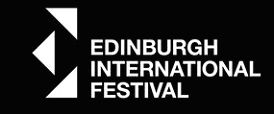 United Kingdom Edinburgh International Festival 1. Delius, A Mass of Life: Royal Scottish National Orchestra, Edinburgh Festival Chorus, Andrew Davis (conductor), Usher Hall, Edinburgh, 10.08.2012 (SRT)
United Kingdom Edinburgh International Festival 1. Delius, A Mass of Life: Royal Scottish National Orchestra, Edinburgh Festival Chorus, Andrew Davis (conductor), Usher Hall, Edinburgh, 10.08.2012 (SRT)
Anna Christy (soprano)
Pamela Helen Stephenson (mezzo)
Robert Murray (tenor)
Hanno Müller-Brachmann (baritone)

I’ve said elsewhere in these pages that I have serious difficulties with Delius’ Mass of Life. Previously I’ve only come across it in recordings from Richard Hickox and, most recently, David Hill. I had high hopes that hearing it live tonight, in the opening concert of the 2012 Edinburgh International Festival, conducted by Andrew Davis, one of Delius’ most persuasive modern advocates, would change my negative opinion and bring to light something new about the work that would have me joining the many others who sing its praises as one of the greatest choral works of the Twentieth Century. Alas, no.
There was so much to praise about this evening’s performance, total commitment from every corner, most especially the Edinburgh Festival Chorus who bear the brunt of the work’s weight, but I remain soundly unconvinced by it as a work of music. To me its ambition falls flat. I find it episodic, showy and lacking in cohesiveness and integrity. There are, of course, wonderful moments: the energy of the choruses that open each part, the swirl of the two great Dance Songs and the Alpine stillness that opens Part Two so magically. As a whole, however, I still don’t buy it. Its parts just don’t add up: it feels as though it’s a collection of units strung together on a text that is flatulent and portentous, something which the composer swallowed whole without judging it critically. The unbearably tedious pronouncements of Zarathustra, sung by the baritone soloist, are the worst culprits, turgid prose set to music which too often chases its own tale, and there are long chunks of the second part that I find interminably dull!
Full marks for effort to everyone who took part, though. The Edinburgh Festival Chorus did a terrific job with the very difficult double chorus part, articulating the words with as much clarity as their singing of the notes had conviction. Chorus Master Christopher Bell has done wonders with them over the last few years, and the upward trend seems to be continuing. The quartet of soloists were very strong too. The colourful, throaty baritone of Hanno Müller-Brachmann did as good a job as was humanly possible of giving Zarathustra’s portentous ramblings a measure of musical integrity. Anna Christy was bright and clear with a sparkling top to her soprano, and Pamela Helen Stephenson’s mezzo contrasted with her well, sounding dark and lustrous in her meditations. Finest of all was Robert Murray’s tenor, whose brief appearances lit up the solo quartet whenever they appeared. The RSNO also did a great job playing music which is not their normal fare, bringing heft to the energetic moments but enough illumination at the quieter episodes, such as the mountain scene of Part Two. Andrew Davis did his best to give the work some structural integrity, leading the dance songs very strongly and steering the opening chorus of each part with clarity and energy. He even convinced me that there was some merit in the very last movement, actually the first that Delius composed, with the final Midnight Song shaped with a sense of cosmic energy and power, building to a great climax before shading down to its barely perceptible climax.
Fine as this culmination is, though, it feels like a great last sentence to an overlong paragraph that doesn’t flow enough. In theory A Mass of Life isn’t a bad choice for the opening concert of so important an arts festival. One of the 2012 Festival’s (many) aims is to celebrate what is great about Britain, and if you’re not going to do this work in the 150th anniversary of the composer’s birth then when are you going to do it? I’m still not convinced, though. Maybe I’m a Philistine so far beyond redemption that there is no hope for me, but if I couldn’t be convinced by a performance that has strengths so great as these, then I doubt I ever will.
Simon Thompson
